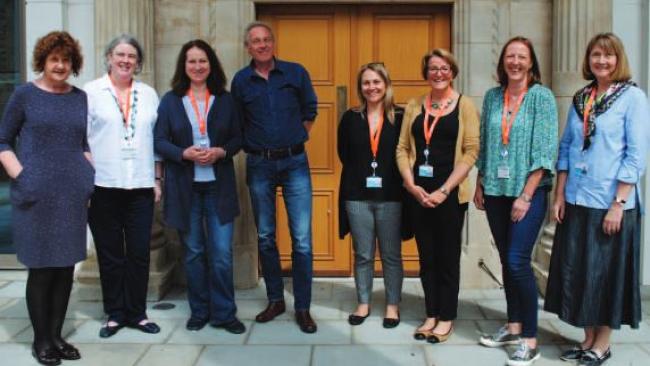
Noah Rouse
Noah was an intern at the Intellectual Forum in 2023. He is an undergraduate at ╠└═Ę╠§įŁ┤┤ studying Theology.
Throughout his Theology degree, Noah has been especially interested in how individuals understand themselves to relate to the divine across different religious traditions and the role that nature plays in this, especially in Islam.
Noah created a podcast for the IF, exploring the ways in which humankindŌĆÖs perceived relationship with nature has changed throughout history and the impact this has had on our academic disciplines and the world around us. You can listen to the trailer below. Podcast episodes are being released in October and November 2023 and are available on and .
Looking forward, Noah is interested in further exploring humankindŌĆÖs self-understanding and how it relates to the ineffable.
We spoke to Noah about the process of creating the podcast what he hoped his listeners would take away from Entanglements.
What are you working on?
I am making a podcast called ŌĆśEntanglementsŌĆÖ all about how societyŌĆöparticularly western society, but society more generallyŌĆöhas had different ideas around how humankind relates to nature. For example, IŌĆÖm looking at how the Romantic movement saw nature and then putting that in contrast with other views of nature, such as how economics and politics have seen it, or how agriculture conceptualizes nature. The first episode is going through time looking at how people have viewed nature and then, building off that, itŌĆÖs showing how diverse a concept it is. The point isnŌĆÖt to change peopleŌĆÖs ideas, itŌĆÖs not even to paint a full picture, itŌĆÖs just to expose us to the reality that this idea of nature that we define ourselves in relation to is not a fixed thing in the way that itŌĆÖs often talked about being.
Where does the title come from?
Entanglements is an anthropological word (you get ŌĆ£entangledŌĆØ with nature), but itŌĆÖs also to show that nature is not a neat categorization. Society is not a "neat" thing, and if anything, nature is even less of a "neat" thing. Are we part of nature, is what we create part of nature? There are these porous boundaries that people often look over but are actually quite impactful in how we think about the world. At what point do we start thinking of ourselves as separate from nature?
How did you come up with your list of interviewees?
The first week of the internship was almost shopping around, saying ŌĆśoh theyŌĆÖve written an interesting bookŌĆÖ, or ŌĆśtheyŌĆÖve spoken at the IF before and maybe theyŌĆÖd have an interesting angleŌĆÖ, and then just getting in contact with people. I came up with a core roster of who would be interesting and I tried to equally email a diverse group of voices. About 50% of the people who I got in contact with got back to me. Maybe 40% agreed to do it. People have been really niceŌĆöalmost too many people got back! I wasnŌĆÖt expecting it.
Who are you most excited about speaking with?
IŌĆÖm really excited about Kate Raworth, who wrote Doughnut Economics. She doesnŌĆÖt directly write about nature, but a lot of her themes are about how we think about ourselves in relation to the world and how we think about ourselves as homo economicus, economic man or economic woman. IŌĆÖm really excited about that. IŌĆÖm interviewing Philip Lymbery, whoŌĆÖs a really interesting guy from Compassion in World Farming. IŌĆÖm also interviewing Gladys Kalema-Zikusoka, who was the first Ugandan wildlife vet. A lot of really interesting people IŌĆÖm looking forward to.
Who is your ideal listener?
Anyone whoŌĆÖs interested. I donŌĆÖt expect it to be too academicŌĆöthat is the edge that it has, but IŌĆÖm hoping it should be accessible to anyone whoŌĆÖs interested in these things. IŌĆÖm hoping to show a range of views on nature, because everybody has a view and therefore has an understanding of how they relate to the natural world, even if itŌĆÖs not conscious. The first thing to do is to make each view conscious and to think about them in dialogue with other views. On the most basic level, just the exposure to different ways of thinking about nature and to different ways of talking about it, I hope that sparks conversations with people.
You can meet the rest of the Intellectual Forum team or contact us via email.











